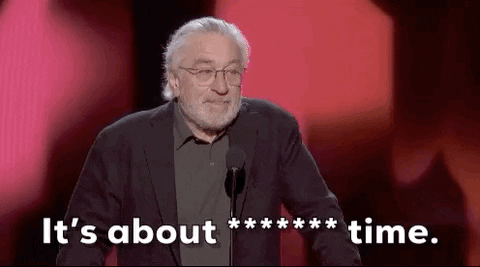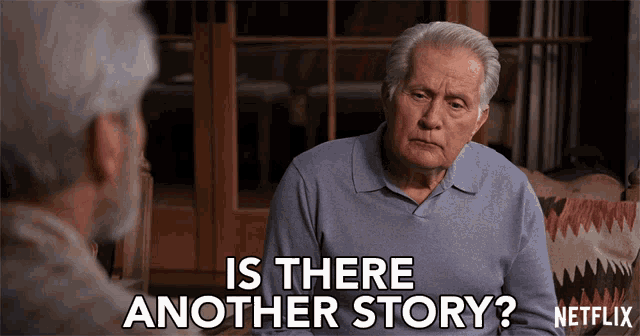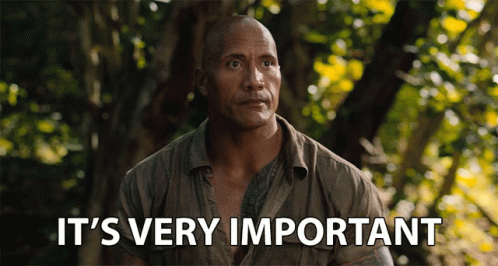🍀 Marketing for a green future
Interview with green marketing expert Reinhard Herok about the responsibility that marketing has for our future.
Hello 👋 My name is Florian Schleicher and this is the FutureStrategies newsletter from FutureS. I'm glad you're reading along 💚 If you want to learn strategic marketing, my Simple & Sustainable Marketing Academy is just right for you.
Sustainability, green and impact marketing is on everyone's lips.
Good thing.
Driven by increasingly dramatic climate change, pressure on regulators to take action finally, and massive generational behavioral shifts, sustainability is not only part of the agenda in many conversations, it's often at the top.
But if we want a solution, we also need to take a frank look in the mirror: Marketing has helped get us into the climate crisis.
To find more approaches and strategies on how we can use marketing to bring about positive change, I interviewed Reinhard Herok.
Reinhard has been working on the topic of green marketing for years - whether in the university environment or with his own company. I also talked to him in particular about the responsibility that marketing now has to write a new story and be part of the solution.
🎙 The interview
What is Green Marketing all about?
We are at a social and ecological turning point in many areas. If we continue to work in this way, we will deprive ourselves of all the foundations of life. This also applies to our economy; there is no time to push away responsibility for a sustainable future.
Marketing is in a state of upheaval; the changes in society demand change. Marketing must also become aware of its responsibility. Marketing is powerful. Marketing creates needs and needs change the world. It cannot go on forever with further, higher, more or cheaper. It is exactly these attitudes that have brought us full throttle into this crisis situation. We have to rethink marketing, discover the real purpose and always think sustainably in the future.
Marketing must become green marketing in order to actively support people in making their lifestyles more sustainable. We in marketing must become aware of our responsibility and the numerous creative possibilities and can help to inspire people for a sustainable lifestyle: with meaningful strategies, value-oriented communication, green products and services and with honest offers with which consumers can consciously decide in favor of climate protection, fair social standards, species protection and animal welfare. With campaigns and a really good purpose, we inspire people and support a sufficiency-oriented lifestyle.
There are really many possibilities and starting points to start with green marketing. No question, if it remains only with single small measures, then we landed immediately gladly once in the Green Washing. Green marketing should and must be part of a holistic strategy. Green marketing is derived from the purpose and fundamental attitude of a company.
An intensive look at the value chains alone reveals many concrete points on how to intervene quickly in the sense of sustainability. The point is to shape the orientation of a company in such a way that the concerns of the environment, employees, and society are respected and protected. In other words, it is about a holistic approach.
Much of the discussion about sustainability is dominated by renunciation. An emotion that is difficult to communicate in marketing. From your point of view, how can we address this or change the framing?
Yes, you're right. When people talk about sustainability, they like to talk about restriction, loss of prosperity and renunciation. Certain groups always want to put a negative spin on this topic. But quite honestly, with the data and facts that science has put on the table, we need a radical rethink. We need a new story around sustainability. A story that inspires, that motivates, that addresses long-term perspectives, that makes us fit for the future and leaves no one behind. Sustainability always has something to do with justice.
But we shouldn't be too pessimistic. Particularly if you observe the young generation, you can sense quite clearly that a major rethink is taking place here. Status symbols like owning your own car, property, ... are no longer in demand. Young people are increasingly asking themselves questions about the meaning of life and how they can contribute to a "better" world. It's hard to imagine when this group is sitting at the levers of power. Something is on the move and this will also ensure a new approach to sustainability. I am and remain an optimist.
As an optimist, you also made a big contribution yourself and created the Green Marketing Conference. How did that come about?
The Green Marketing Conference was born during the lockdown. I didn't want to deprive our students and interested guests of the wide range of exciting and inspiring personalities. The online format turned out to be a real stroke of luck. It allowed me to give a stage to 8 speakers. Always in small bites of about 40 minutes.
The willingness to appear as a speaker at the Green Marketing Conference was very great and in November 22 the fourth conference already took place. Among others, Leonore Gewessler, Johannes Gutmann, Cornelia Daniel, Georg Strasser, Theresa Mai, Carsten Buck, Stefan Grafenhorst, Andreas Tschas and many other personalities could be won as speakers. The Green Marketing Conference is also an excellent example of how online formats can be well integrated into teaching. And yes, the next conference is already being prepared.
As consumer demand for sustainable products and services increases, so does greenwashing - why is this development dangerous?
Green has a positive connotation. Politicians and the media always speak positively in connection with green. So it's already tempting for companies to jump on this bandwagon. A green image has never done any harm. I think some companies fall into the greenwashing trap quite unconsciously, and there are also companies that deliberately engage in greenwashing and adorn themselves with "green" flags. There are various reasons for greenwashing: lack of knowledge, too little examination, lack of prioritization, lack of sensitivity, etc.
However, greenwashing also leads to a loss of trust on the part of direct stakeholders such as customers and employees. This means that greenwashing also harbors very concrete risks for companies, such as loss of sales. In summary, greenwashing makes no sense. The EU is currently preparing a new directive on "green claims" and then there will be stricter rules and also sanctions.
What do you see as the future of sustainable communication? And how do we get there?
Sustainable means fit for the future. Communication solutions that meet this requirement pursue more than one goal. The communication goal remains at the top of the list. However, the decisive factor is the way in which this is achieved.
Conventional market communication promises: Advertising works! From the point of view of sustainability, just as much attention must be paid to the side effects. A solution that wants to be sustainable must take into account aspects that go beyond communicative performance - into economic, ecological and social areas.
Sustainable communication is the best way to assume the associated responsibility and thus create long-term prospects. For people, companies and organizations, for our environment, our regions and above all - for those generations from whom we have borrowed this earth.
Marketing is present throughout the product life cycle and therefore has many opportunities to actively intervene in sustainability. Marketing is only the tip of the iceberg, but the marketing task is important because everything that is done here becomes so visible and tangible. How people buy and consume products has a huge impact on our planet and our society. Marketers can use their "power" with consumers in a variety of ways to also be positive and inspiring. Marketing is a powerful force. Marketing creates needs and needs change the world. Marketing can promote sufficiency-oriented lifestyles by focusing on the satisfaction of "needs" rather than the creation of "wants."
If the marketing and advertising community became aware of its special responsibility and opportunities on this front in the fight against climate change, if it worked to make renunciation cool, change desirable, and more, so that our behavior would be climate-positive, we would achieve an acceleration of positive change.
There is really no longer any alternative to sustainable communication. The climate crisis is already being felt too keenly, social injustices and the exploitation of disadvantaged groups are multiplying.
And yet: We can still do something! Communication will play a key role in this.
3️⃣ Last Questions
Finally, here is my short question-and-answer session with Reinhard:
What book did you just read and do you like to recommend?
"The Eight Mountains" by Paolo Cognetti - a book about home and friendship.
Which brand do you think does good green/impact marketing?
The future of storytelling
lies in the DOING.
〜 End of interview〜
👀 At a glance
"I am and will remain an optimist" - a phrase that unites Reinhard and me, in addition to our sustainable heart. We urgently need more people who are optimistic.
This reminds me of a statement by futurologist Jane McGonigal in her book Imaginable:
“Urgent optimism is the desire to act immediately to tackle an obstacle, combined with the belief that we have a reasonable hope of success.”
From great power comes great responsibility. Marketing creates needs, as Reinhard rightly says. And needs to change the world.
So if we manage to rethink marketing, tell a new story about consumption and sustainability, and inspire people with it, we will also manage to shape our future in a positive way.
The future is sustainable impact.
And people like Reinhard, Olga, and me are helping to shape it.
Are you with us?
Thanks for reading along!
Reinhard Herok is a research associate and lecturer at the Institute for Sustainability at the FH Wiener Neustadt Campus Wieselburg and a lecturer at the IMC University of Applied Sciences Krems. He specializes in topics such as "Green Marketing", "Green Branding" and "Sustainable Communication". After years of experience in marketing and sustainability management, he started his own business and founded his own company "herok - only with passion" in April 2014, with which he has made it his goal to accompany and support Green Start Ups in Austria on their way as a trainer and mentor. He is passionate about new ideas and sustainable products and loves to contribute to meaningful initiatives.
PS: You can also read this posting in German.
Looking for more reading material?
🌍🔜 The future is impact marketing - How will sustainable impact on planet, profit & people shape companies in the future and what is impact marketing?
🤑 Greenwashing in marketing - What it is, why it's bad, and which brands are "greenwashing."
✅ Green marketing with strategy - What does it take for strategic green marketing and which companies are doing a good job?
♻️ Green Marketing - About the responsibility that marketing has for our future









